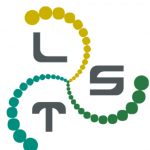Legal Informatics (Basic)
( 4 ECTS)
Coordinator – Prof. Monica Palmirani
1. ICT Legal Sources Modelling. A strong background in (a) modelling legal resources with legal XML standards and semantic Web techniques aimed at managing and updating the law; (b) legal information systems, with a legal drafting editor capable of managing the entire lifecycle of the legislation process in different environments and different languages, with different legal traditions and using different standard techniques (DTD or XML-schema); (c) eLegislation, eParliament and eParticipation for modelling the document management flow; (d) creating legal ontologies and Semantic Web models; prof. Fabio Vitali – (d) XML-isation project in Parliament (European Parliament, Pan-African Parliament, Latin American Parliament); (e) XML legal knowledge modelling of law and judgment for favuring legal reasoning with non-monotonic and non-deductive logic.
2. prof. Cesare Maioli – Computer forensics. As all segments of society become more dependent upon networking and information technology, this same technology becomes an increasing tempting target for malicious activity. To make the systems more robust and resilient against this threat, new and improved ways to diagnose malicious sytem events are needed. Analysis, tools and procedures for examining digital evidences are finding their place in internationally shared frameworks; harmonization of legal initiatives at the European level are helping law enforcers to apprehend the perpeptrators involved in computer crimes. The ability to gather credible and reliable digital evidence will help to make information sytems stronger in the long run and will provide society the ability to prosecute those who intrude upon and damage these systems. Thus, computer forensics is becoming a key pillar of the information security posture of enterprises and organizations.
3. Legal information system. Courts as well as the parliaments, public administrations implements information system for innovating the processes and for fostering the potentialities of the ICT. In this module we face the technology enabling the innovation in those so peculiar and complex environments, the principles of the theory of law and private law that the informatics need to guarantee.

 LAST-JD
LAST-JD 










